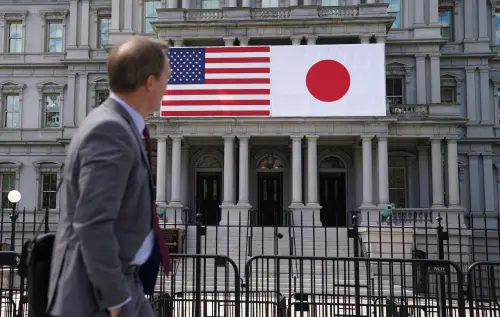The United States has long been schizophrenic about European unity. Washington has generally wanted a strong Europe capable of sharing global burdens, but not one so strong that it follows an independent course and challenges U.S. leadership. The debacle in Iraq and America’s consequent diplomatic isolation, however, seemingly ended that ambivalence. The U.S. found itself in need of help on every front – and Europe was the obvious place to turn for that help.
Accordingly, the Bush administration during its second term rediscovered the merits of a strong Europe. And Barack Obama is an open proponent of a revitalized and more balanced trans-Atlantic partnership.
Recent comments in the U.S. press, however, make it clear that America’s schizophrenia about the merits of a more tough-minded Europe is making a comeback. The Wall Street Journal recently criticized France’s president, Nicolas Sarkozy, for his effervescent EU leadership, saying he lacked “moral clarity” in dealing with Russia during the Georgian crisis. The Washington Post, while allowing that “a forceful and capable European president might indeed benefit the West,” fired its own salvo, welcoming the end of Sarkozy’s EU presidency while accusing him of “kowtowing” to Moscow and “issuing peremptory demands in Washington” on how to deal with the financial crisis.
To be sure, Sarkozy occasionally overplayed his hand while France held the EU’s rotating presidency from July to December 2008. But on balance, his EU leadership provided exactly the kind of international activism that Europeans want and Americans need. In terms of confronting global challenges and repairing the trans-Atlantic link, a unified and pro-active Europe is preferable to one that remains a lethargic U.S. lapdog.
For Europe to assert itself on the global stage, it will take Sarkozy’s brand of energetic guidance to do so; the EU simply remains too fractious and its institutions not sufficiently centralized to otherwise project its muscle. After years in the doldrums, the EU sprang back to life with Sarkozy at the helm, with impressive results:
- When Washington was virtually paralyzed by the rising financial crisis, Sarkozy took the initiative. The G-20 summit meeting that emerged from his call to arms succeeded in securing broad international coordination. Moreover, Europe led the way in recognizing the need for government intervention in the banking sector. American policy makers got on board only after European governments moved first.
- During the war between Russia and Georgia, the EU succeeded in securing a cease-fire – while U.S. diplomacy was nowhere to be found – and promptly dispatched a monitoring mission to help keep the peace. As Washington was railing against Russia’s aggression, Sarkozy and his European colleagues had the clarity to see that Georgia was hardly blameless and that its president, Mikheil Saakashvili, made a gross error in attacking South Ossetia on Aug. 7. While mindful of the need to preserve a working relationship with Moscow, Sarkozy is no apologist for Russia, but sees the country through the realist lens that is too often obscured by ideological blinders on the other side of the Atlantic.
- During the French presidency, the EU dispatched its first ever naval mission to combat piracy off the coast of Somalia. Commercial ships of many nations have been the beneficiary.
- Sarkozy prompted the EU to reinforce its “strategic partnership” with NATO, facilitating cooperation in missions where the two bodies are involved, such as in Kosovo and Afghanistan.
- In the fight against global warming, the EU readied itself for a leading role in shaping a post-Kyoto agreement by concluding negotiations to cut its own carbon emissions by 20 percent before 2020, and even by 30 percent if other developed countries (read the United States) make comparable efforts.
Now that the EU presidency has moved on to the Czechs, Sarkozy’s legacy remains uncertain. But the French presidency gave a hint of what could be in store for the EU’s global role should Europeans finally enact the Lisbon Treaty, establish a presidency that runs for five years and selects a strong individual for the post.
Sarkozy offered a brand of EU leadership that works, reviving the Union and making significant headway in projecting a responsible European voice in global affairs. The Obama administration should recognize this for what it is – the stirrings of the more capable and collective European partner that the United States so sorely needs.



Commentary
Op-edSarkozy’s Europe is Good for Obama
January 14, 2009